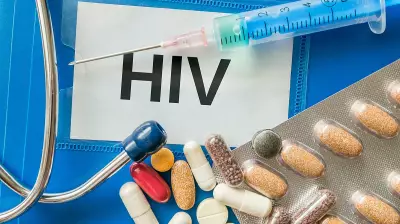
In a significant breakthrough for digestive health research, scientists have finally uncovered how specific genetic mutations trigger the debilitating inflammation characteristic of Crohn's disease. The discovery, made possible through artificial intelligence, reveals the precise molecular mechanisms that disrupt the delicate balance of immune responses in the gut.
The AI-Powered Investigation
Researchers from the University of California, San Diego employed sophisticated machine learning techniques to analyze patterns in gene activity among immune cells within the digestive system. Their investigation focused on macrophages, crucial immune cells that act as peacekeepers in the gastrointestinal tract.
The study identified that mutations in the NOD2 gene, long associated with Crohn's disease, disrupt normal protective mechanisms that typically prevent inflammatory bowel disease (IBD). Through experiments conducted on laboratory-grown cells and samples from both healthy digestive tracts and those affected by Crohn's disease, the research team made critical connections that had previously eluded scientists.
The Gut Battlefield: Macrophages as Peacekeepers
By monitoring gene expression in macrophages, the researchers could distinguish between cells that maintained gut health and those that promoted inflammation and tissue damage. "The gut is a battlefield, and macrophages are the peacekeepers," explained UC San Diego researcher Gajanan Katkar.
"For the first time, AI has allowed us to clearly define and track the players on two opposing teams," he added, highlighting the revolutionary nature of their approach.
In a healthy digestive system, macrophages can switch between two essential states: an inflammatory mode for combating infections and a non-inflammatory mode for repairing damage. Maintaining equilibrium between these two states is crucial for gastrointestinal health.
The Critical Protein Partnership
The research team identified a genetic profile consisting of 53 genes that regulate macrophage status in inflammatory bowel disease. Central to this discovery was the protein girdin, which supports the non-inflammatory state of macrophages.
The study revealed that NOD2 and girdin proteins work in partnership to maintain macrophage vigilance against threats without triggering excessive reactivity. When this collaboration fails, attack-mode macrophages become overly inflammatory, while repair-mode macrophages lose effectiveness in clearing targets.
"NOD2 functions as the body's infection surveillance system," stated Pradipta Ghosh, a cell scientist at UC San Diego. "When bound to girdin, it detects invading pathogens and maintains gut immune balance by swiftly neutralizing them. Without this partnership, the NOD2 surveillance system collapses."
The researchers emphasize that these insights provide new understanding of the molecular pathways underlying gut homeostasis and the progression of inflammatory bowel disease, potentially opening doors to more targeted treatments for Crohn's disease sufferers.






